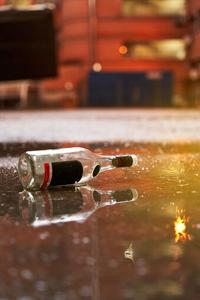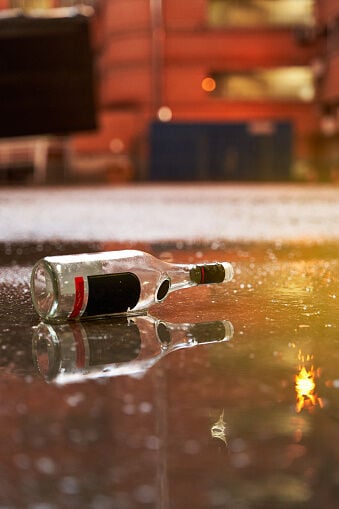PHOENIX — A House panel voted Wednesday to make some, but not all, forms of hazing a crime.
House Bill 2322 seeks to spell out in the state’s criminal code that it is a misdemeanor to subject any minor or student to any act that would violate a state or federal criminal law.
The measure also would ban activities that involve physical or mental brutality, sexual humiliation or forcing someone as part of an initiation, pledging or other ceremony to consume any food, liquor, drug or other substance that creates the risk of physical or emotional harm.
Violators could face up to six months in jail.
“I was kind of shocked to discover that we actually didn’t have a law against hazing,” said Rep. John Kavanagh, R-Fountain Hills, sponsor of the measure.
Instead, he said, there’s only a statute that says universities must have a policy defining hazing and saying that anything included in that definition is prohibited.
The only time it now becomes a crime, Kavanagh said, is when someone is killed or seriously injured, allowing the perpetrators to be charged with manslaughter or assault. He said it should not have to wait until that point for law enforcement to get involved.
“It’s really important to give clear public notice to people, clear warning, that hazing that causes a risk of injury or death is just not acceptable, is against the law,” Kavanagh said.
The measure drew support from Heather Leventhal, who told the Committee on Government and Elections of the “life-threatening injuries’’ suffered by her son, Christian, during a 2018 hazing ceremony at Kappa Sigma fraternity at Arizona State University.
“Text messages revealed they did not fear any repercussions for the damages they had done,” she said. “It was not going to prevent them from getting a job. It would not be on their record. And they would not be held personally financially responsible.”
Rep. Alma Hernandez, D-Tucson, supported the bill. But Hernandez, who said she was in a sorority at the University of Arizona, sought to dispel the idea this is a major problem.
“I just want to make it very clear that in the sororities that I knew and had friends in, and in mine particularly, we never promoted hazing,” she said. “I don’t want people to get the impression that’s what we do on campus.”
Kavanagh said hazing would remain legal in some forms. “So, you could still make pledges carry objects around, stand at attention when people come in,” he said. “It’s just the dangerous stuff.”
He said the measure would cover more than fraternities or sororities.
“This would cover any organizational hazing,” he said, as long as it involved minors or students of any age.
That drew questions from Rep. Kevin Payne, R-Peoria, who cited his own experience in the U.S. Navy with a multicentury tradition of initiating sailors who are crossing the equator for the first time, including actions like bobbing for onions in a toilet and being hit with hoses. “But nobody ever died or got seriously injured doing these things,” he said.
Kavanagh said what would be illegal comes down to the extent of what happened. “If the so-called hosing was symbolic, not causing any injury, it wouldn’t,” he said.
House Minority Leader Reginald Bolding, D-Laveen, said the proposal makes sense.
“It’s important to send a message that you can have fun, you can have a good time, without going through rituals that in the past have shown to be not healthy for college life, not healthy for people,” he said.
The measure, which passed on a 12-1 vote, next needs approval of the full House. Only Rep. John Fillmore, R-Apache Junction, was in opposition, though he did not explain his vote.





